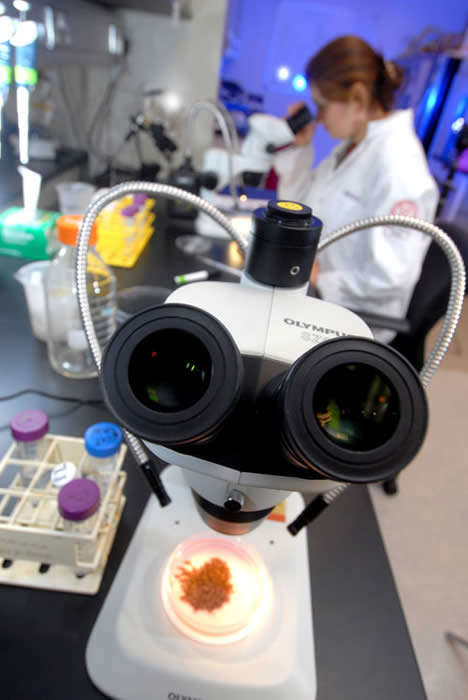WCMC-Q Research Takes Aim at Diabetes and Related Disorders
April 2010

The new research center will provide scientific and
clinical expertise in an area of crucial importance for
Qatar, and help expand the country’s research
infrastructure and build human capital.
WCMC-Q is creating a research center that will focus on causes and treatments for diabetes, obesity and metabolic syndrome, which are major health challenges in Qatar and the Gulf Region.
With full-page advertisements in international journals, WCMC-Q has begun recruiting six full-time investigators with expertise in clinical research or translational biomedical science. The new recruits will join WCMC-Q’s existing biomedical research program, which was established two years ago and now has more than 30 scientists and research associates as well as fully functioning support laboratories in genomics and imaging.
To accommodate its growing biomedical research program, WCMC-Q has begun construction to double the area allocated to research. Unfinished space on the floor above the existing research wing is being turned into research laboratories, specialized procedure rooms and offices for the biomedical investigators.
“By creating a collaborative, multidisciplinary research team focused on diabetes, obesity, and related disorders, we hope to maximize the impact of our work and its benefits for Qatar and the region,” says Javaid Sheikh, MD.., dean of WCMC-Q. “The buildup of the research program is an essential part of WCMC-Q’s strategic plan for the next five years. We have successfully implemented the first phase of our plan, the establishment of a branch of Weill Cornell Medical College overseas and the awarding of the M.D. degree to more than 30 graduates. Now we move on to the second phase, which includes establishment of centers of excellence like this one that will focus on diabetes and related disorders,” said Dr. Sheikh. “Working with our partners Hamad Medical Corporation, Sidra Medical and Research Center, and Weill Cornell Medical College in New York, we believe our focus on genomic analysis can help us understand the high risk for diabetes in the Qatari population and use the information to tailor therapies for individuals based on their genes.”
Diabetes and related endocrine, nutritional and metabolic diseases are a leading cause of death in Qatar, according to the international classification of diseases developed by the World Health Organization. About 18 percent of the Qatari population has diabetes, according to recent estimates.
“Besides providing scientific and clinical expertise in an area of crucial importance for Qatar, the center will also help expand the country’s research infrastructure and build human capital,” says Khaled Machaca, Ph.D., associate dean of research.
Report by Kristinga Goodnough
